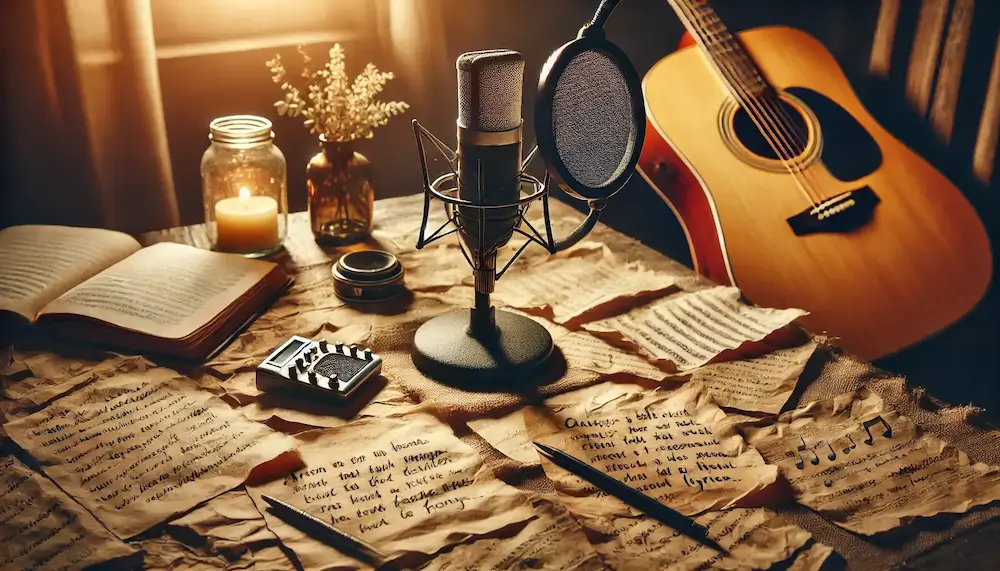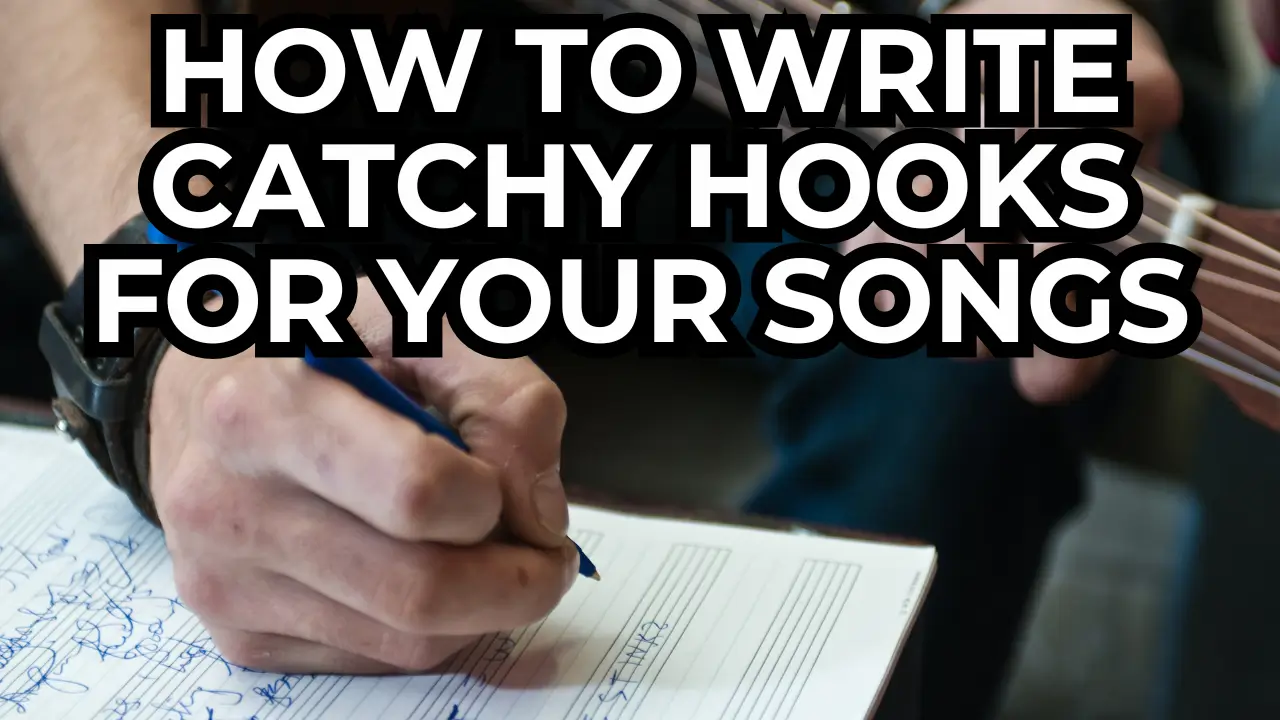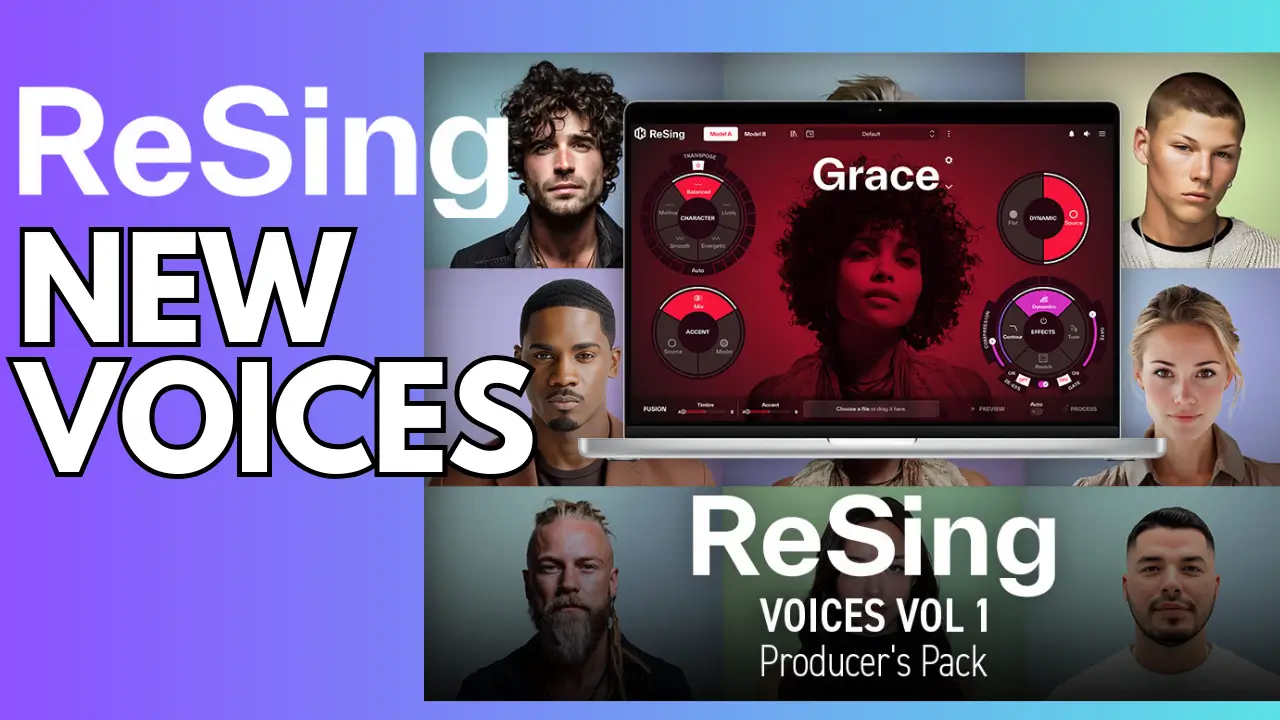Hooks are the secret sauce in any hit song. They’re the little earwigs that cling to your mind long after the music stops. If you’re dreaming of writing something people can’t stop humming, you’re in the right place.
A strong hook can transform a good song into a great one, making it stick in listeners’ heads. Think about some of your favorite tracks—odds are, there’s a catchy snippet that you can’t help but sing along to. This is no accident. It’s all about striking a balance between repetition, melody, and message.
Analyzing songs like ‘You Get What You Give’ by New Radicals or ‘Rolling in the Deep’ by Adele can back this up. These tracks deliver hooks that are catchy and meaningful. But it’s not just about having a great line or melody; it’s about creating something that feels fresh and unexpected.
Let’s break it down. A compelling hook usually contains a few key elements. Repetition is powerful, and a simple melody that follows familiar patterns can make the hook memorable. Add a dash of rhythm and some clever wordplay, and you’ve got the ingredients of a hook that hits home.
Understanding what makes a hook successful boils down to psychology. Creating anticipation and surprise keeps listeners engaged. They might not know why, but they do know they like it. So, the trick is understanding these little quirks and learning how to manipulate them into something unique, something that stays with people even when they’ve switched off their Spotify.
Ready to start crafting your own ear candy? Identifying the techniques used by pros can act as your base. Once you get a sense of these tactics, building catchy hooks of your own won’t seem like an impossible mountain to climb anymore.
Related Posts:
- Write Better Songs Faster – Hookpad’s Revolutionary Approach To Hooks
- Collaborative Songwriting Games: Fun Ways To Create Music Together
- Finding The Right Collaborators
- AI Driven Chord Progression Suggestions
Why Your Hooks Aren’t Working And How to Fix Them Instantly!
Hooks can be tricky critters. You’re all geared up to write that unforgettable melody, yet it just doesn’t click. Well, fear not. We’ve all been there, and understanding what’s going wrong is half the battle.

The first misstep many songwriters make is overcomplicating things. Sometimes, we pack so much into our lyrics and melody that it loses the magic. Simplicity is key. Remember, hooks are about grabbing attention swiftly and simply. If you’re overloading with too many words or complex melodies, it might be time to strip it back.
Then there’s the trap of not connecting emotionally. A hook that feels emotionally detached from its song won’t resonate. Does your hook evoke any feeling? Whether it’s joy, sadness, or anything in between, emotional resonance makes it stick.
Repetition (the right kind, mind you) can seal the deal. Hooks lacking repetition fail to reinforce the melody in the listener’s memory. A well-used repeated phrase or beat can work wonders, threading it into the minds of your audience.
Sometimes, though, it’s about context. Is your hook reflective of the song’s vibe? A mismatch can make it fall flat. If your melody doesn’t sync up with your lyrics or the rest of your tune, try reworking parts to harmonize better.
To fix these issues instantly, try recording your hook and listening to it repeatedly. Notice which part sticks naturally and which part doesn’t. Seek feedback from others. A fresh pair of ears brings invaluable insight!
Remember, refining your hook is part of the creative journey. Each tweak and adjustment brings you closer to crafting that perfect nugget of musical gold.
Steal These Secrets to Writing Hooks That Get Stuck in Everyone’s Head!
Sometimes, to write something unforgettable, you got to borrow some wisdom from the masters. There’s no shame in it. Let’s dig into what makes those earworms tick.
Repetition isn’t just a tool, it’s your new best friend. A well-placed repeated melody or phrase sets the hook firmly in your listener’s head. You hear it on the radio all the time; a catchy lyric gets repeated because it works.

Don’t underestimate simplicity. Too many aspiring songwriters think complexity equals genius. It’s the opposite for hooks. Boil down your idea to its essence. Reduce the number of words, strip back extra notes. Think of a hook as a summary of your song’s heart.
Alliteration and a bit of rhythm can turn even the simplest phrase into something magical. The best hooks play with words like seasoned pros. They use alliteration to catch your ear and rhythm to keep you hooked.
Steal a trick from great songs like Billy Joel’s ‘Uptown Girl’ or ‘Shake It Off’ by Taylor Swift. They’re all about getting heads nodding and feet tapping with their infectious beats.
Don’t forget about those unexpected twists. A quirky melody change or surprise lyric can leave listeners wanting more. It’s what transforms a good hook into a fantastic one.
Tap into these techniques and let them guide your creative process. The best hooks feel effortless, like they were always meant to be. That’s the level you should aim for.
Craft Addictive Hooks in Minutes Even if You’ve Never Written a Song!
You don’t need to be the next Mozart to whip up an infectious hook. It’s more about creativity and a little bit of know-how than musical prestige. If you’re new to the game, here’s a way to get started right away.
Start by humming a random melody. Yes, just like that. Your natural inclination will often lead you to something simple yet memorable. Often, the best hooks come from spontaneous moments rather than calculated efforts.
Experiment with different tempos. A slight change in speed can totally transform how your hook feels. Try singing faster, then slower, to see what catches your ear. Play around with rhythms, too. Sometimes a punchy beat is all you need to make your hook stand out.
Try apps like HookPad to get your ideas flowing.
Working with melodies? Try using ‘la’ or ‘na’ before settling on lyrics. It puts the focus on melody where it counts in the early stages. Lyric ideas tend to flow better when you’re not tangled up in words right from the start.
Collaboration can spark brilliance, so don’t hesitate to bring others into your creative bubble. Play around with ideas—sometimes a friend’s input helps unlock a gem you might have missed solo.
Lastly, don’t stress about perfection. Hooks often start rough before they slick into shape through polishing. Throw your ideas out there and refine as needed. Remember, some of the greatest hits began as a simple whim.
So grab your instrument (or just your voice if that’s all you’ve got), and dive into the world of hook writing. Let go of fear and embrace the fun in experimentation. Who knows? Your next melody might just be the next big thing!
The #1 Hack for Writing Catchy Hooks That Skyrocket Your Songs
So, how do you pull off that killer hook everyone loves? Here’s the secret: Make it relatable. A hook that resonates with people on a personal level has a VIP ticket straight into their memory.
Songwriters Swear by Hookpad – Here’s Why You Should Too!
Think about the songs that hit home with you. It’s probably because they capture an emotion or experience you’ve had. That’s the power of relatability. Bring a slice of your life into your music. A little personal touch makes a hook hit harder.

It’s all about emotional honesty. Listeners can sense when something’s genuine. If you’re moved by what you’ve created, chances are they will be too. Pour your own feelings into the hook, let that shine through the notes and lyrics.
Crafting from personal experiences doesn’t mean sacrificing catchiness. In fact, those honest lines can become the most hummable parts of a song. The trick is blending your truth with melodies that flow and lyrics that stick.
Feedback is your ally. Share your hooks early, get those honest opinions. Others might catch something you missed. Plus, you’ll know what’s working emotionally and what’s not, straight from future fans’ mouths.
Remember, a catchy hook is more than just a sound—it’s a feeling, a moment, a memory. Make it feel real, and it’ll find its own place in listeners’ hearts. Transform those relatable slices of life into tunes they’ll never forget.
8 Recommended Songwriting Books on Hooks
Diving into the world of hooks is easier when you’ve got a guide, and books from seasoned pros offer exactly that. If you’re looking to level up, these are the must-reads that’ll revolutionize your songwriting.
Highlights:
- Write memorable melodies in any genre using pattern, repetition, and arc.
- Write songs that artists want to sing and audiences will remember.
- Write lyrics that are more musical.
- Eliminate getting stuck and complete songs faster.
- Feel confident in any writing or co-writing situation.
- Turn good melodies into great melodies.
“We are a participant in the Amazon Services LLC Associates Program, an affiliate advertising program designed to provide a means for us to earn fees by linking to Amazon.com and affiliated sites.”
2. Pat Pattison’s “Writing Better Lyrics” isn’t just for lyricists—it’s crucial for hook writers too. This book pushes you to harness your creative thoughts and mold them into lines that pop and stick.
3. For those looking into the rhythm side of things, “This Is Your Brain on Music” by Daniel Levitin breaks down why certain hooks catch our attention. Understanding the science behind music can enhance your own composition skills.
4. Robin Frederick’s “Shortcuts to Hit Songwriting“ delivers exactly what’s promised—shortcuts. Simplifying the hit-making process into actionable steps, this one’s perfect for grasping hook dynamics quickly.
5. For a deep dive into melody, check out “Melody in Songwriting: Tools and Techniques for Writing Hit Songs“ by Jack Perricone. It helps unlock your potential to create hooks that are both catchy and meaningful.
6. “The Songwriter’s Workshop: Harmony“ by Jimmy Kachulis emphasizes the harmony side of songwriting, teaching you how different elements come together to create a standout hook.
7. Andrea Stolpe’s “Popular Lyric Writing: 10 Steps to Effective Storytelling“ focuses on blending storytelling with catchiness. A convincing narrative hook can be just as memorable as a melodic one.
8. Lastly, “Tunesmith: Inside the Art of Songwriting“ by Jimmy Webb is a classic that covers the whole gamut of songwriting, with invaluable insights into the creation of unforgettable hooks.
Reading these books connects you with the expertise of hitmakers. Absorb their knowledge, and your own hook-writing prowess can only grow stronger.
Blast Off Your Songwriting Career with Viral Hooks!
Creating a viral hook is like striking gold in the songwriting world. Who wouldn’t want their melody to sweep across the internet, right? With a few strategic moves, you can increase the odds.
Stay plugged into the musical trends. The more in tune you are with what’s catching fire in the music world, the better you can tailor your hooks to be relevant and fresh. Genres that are trending can provide inspiration on what listeners are currently loving.

Use platforms like TikTok, Instagram Reels, and YouTube not just for sharing but for learning what songs go viral. Notice the patterns—certain beats or lines get used repeatedly? Figure out why they work. Apply that discovery in your creations.
To improve your chances of going viral, consider making hooks versatile enough for various contexts. Something memorable yet simple ensures it can be adapted, remixed, or even used in other creators’ content easily.
Seek feedback from online communities. Drop your hook in a songwriting forum or social media group. These spaces are filled with creators and listeners ready to give you pointers or even get your idea buzzing.
Visuals aren’t to be ignored either. Pair your hook with captivating visuals for platforms that favor video content. A great melody isn’t just heard, often it’s seen too. Syncing a catchy tune with the right imagery can amplify its reach.
Engage with your audience. Respond to comments, start challenges, or ask for user-generated content revolving around your hook. The more interaction your hook generates, the more it signals to platforms that it’s worth pushing out further.
Building a viral sensation is a delicate balance of musicality, relevancy, and a bit of luck. With open eyes and ears for what’s current, combined with your unique creative spin, your hooks have the potential to skyrocket your songwriting career.
Conclusion: Your Path to Writing Unforgettable Hooks
Crafting hooks that leave a lasting impact is a blend of art and intuition, fueled by creativity and sharpened by practice. Embrace the journey of writing, as each step brings you closer to discovering what does and doesn’t work.
Reflecting on the guidance explored, simplicity remains at the heart of it all. Keep your hooks clear and compelling, aimed at evoking emotion and staying memorable, like those iconic tunes that became anthems for their time.

Personal stories add a genuine touch, transforming good hooks into great ones. Walks along your own path manifest beautifully in melodies, making them relatable to the experiences of others.
Implementing feedback, whether from fellow musicians or online communities, provides clarity and direction. It helps refine your work into something that resonates widely, giving your hooks the best chance to shine.
Reading and learning from industry experts and great songwriters further enhances your craft. Take time to explore books, workshops, and interviews that reveal insights into hook success.
Experiment fearlessly with your sound and structure. Mistakes are merely stepping stones to better understanding your signature style. Each tweak and adjustment leads to improved creativity.
Your venture into hook writing is not just about finding success but also about enjoying every moment of creativity. Stay passionate, keep writing, and let your hooks tell their own stories, becoming parts of something far greater.
Related Posts:





Leave a Reply